
In a nutshell, Education For Life works directly with children’s energy. This focus on energy is at the core of Education For Life as described by Educaton For Life’s formulator, J. Donald Walters (Swami Kriyananda), in his book Education for Life. Education For Life can be said to attune the adult and child. This is a usually overlooked aspect of instructional success. It is what sets Education For Life apart from almost every other educational approach, even those that are, like Education For Life, also experiential, holistic, child-centred, and integrated.
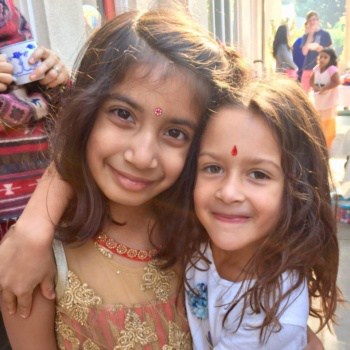
Underlying Education For Life are the ground-breaking principles and practices of Paramhansa Yogananda at his “how-to-live” school for boys, first in Dihika and then Ranchi. His school won wide acclaim even before he left for the West — the first Indian yoga master to actually reside there.
Building on Yoganandaji’s work with just a few later “tweaks”, Education For Life has developed over four decades — branching out from the first primary school (1972) and the first high school (1997). There are also a quite a few teachers at other schools implementing Education For Life in their own classrooms.
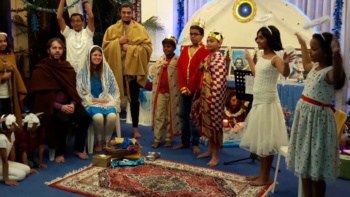 In both settings, the Education For Life approach is living proof that the instructional process can be joyful and stress-free without sacrificing academics.
In both settings, the Education For Life approach is living proof that the instructional process can be joyful and stress-free without sacrificing academics.
This aspect of Education For Life is one of the main reasons former Indian president APJ Kalam was so enthusiastic about it when he met Swami Kriyananda in 2006!
In a nutshell, Education For Life works directly with children’s energy. This focus on energy is at the core of Education For Life as described by Educaton For Life’s formulator, J. Donald Walters (Swami Kriyananda), in his book Education for Life. Education For Life can be said to attune the adult and child. This is a usually overlooked aspect of instructional success. It is what sets Education For Life apart from almost every other educational approach, even those that are, like Education For Life, also experiential, holistic, child-centred, and integrated.
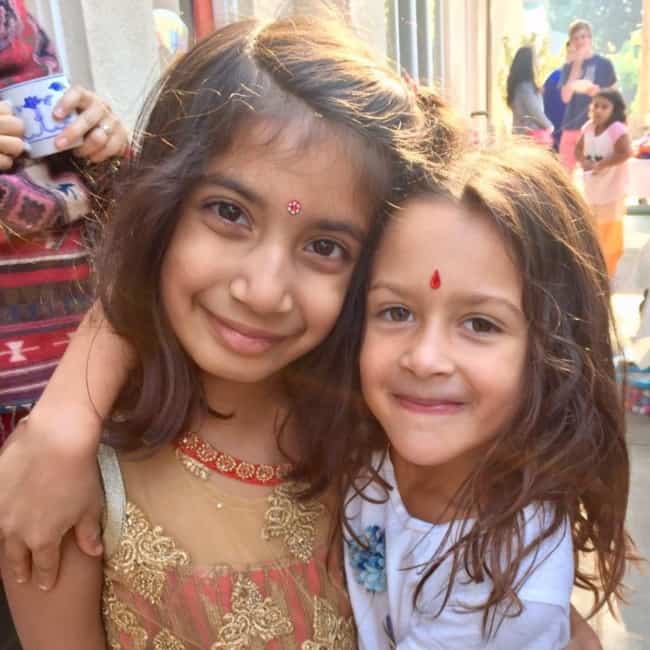
Underlying Education For Life are the ground-breaking principles and practices of Paramhansa Yogananda at his “how-to-live” school for boys, first in Dihika and then Ranchi. His school won wide acclaim even before he left for the West — the first Indian yoga master to actually reside there.
Building on Yoganandaji’s work with just a few later “tweaks”, Education For Life has developed over four decades — branching out from the first primary school (1972) and the first high school (1997). There are also a quite a few teachers at other schools implementing Education For Life in their own classrooms.
In both settings, the Education For Life approach is living proof that the instructional process can be joyful and stress-free without sacrificing academics.
This aspect of Education For Life is one of the main reasons former Indian president APJ Kalam was so enthusiastic about it when he met Swami Kriyananda in 2006!
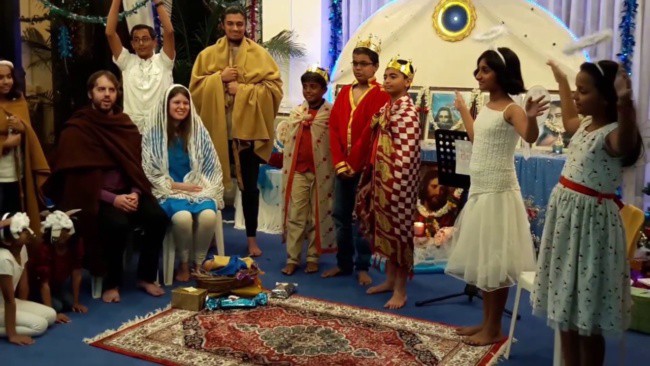
Full Circle
Soon after the new millennium, when Ananda began a branch in India, Education For Life also quietly returned to the land of its birth. Although we have no school in India yet, many inroads have been made in bringing Education For Life principles and practices to parents and teachers. Several schools have adapted it for their own needs, and one of them is hoping to become a fully Education For Life school.
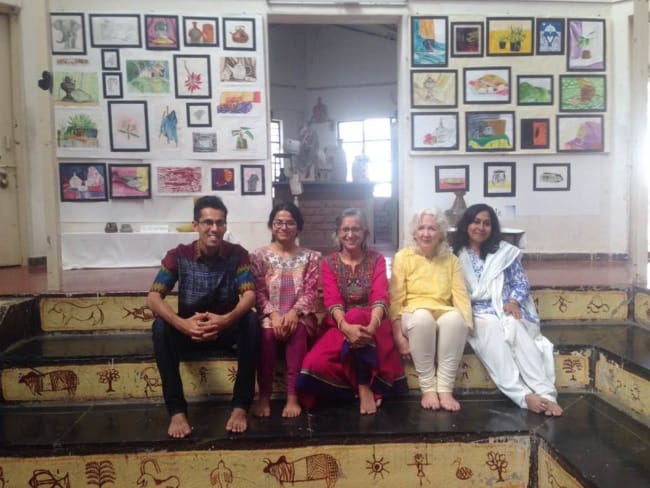
Education For Life outreach in India has been mainly in the NCR, Pune, Puducherry, and Udaipur, as well as Ahmedabad, Rishikesh, and Haldwani, through the efforts of Education For Life India co-directors Gayatri Nambiar and Prisha Kirby. Theirs is a collaboration of East and West in educational practice as well as teaching students at both ends of the age spectrum.
Rounding out the Education for Life India team are several younger associates in various stages of training and teaching experience.
Full Circle
Soon after the new millennium, when Ananda began a branch in India, Education For Life also quietly returned to the land of its birth. Although we have no school in India yet, many inroads have been made in bringing Education For Life principles and practices to parents and teachers. Several schools have adapted it for their own needs, and one of them is hoping to become a fully Education For Life school.
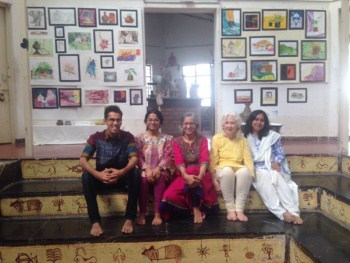 Education For Life outreach in India has been mainly in the NCR, Pune, Puducherry, and Udaipur, as well as Ahmedabad, Rishikesh, and Haldwani, through the efforts of Education For Life India co-directors Gayatri Nambiar and Prisha Kirby. Theirs is a collaboration of East and West in educational practice as well as teaching students at both ends of the age spectrum.
Education For Life outreach in India has been mainly in the NCR, Pune, Puducherry, and Udaipur, as well as Ahmedabad, Rishikesh, and Haldwani, through the efforts of Education For Life India co-directors Gayatri Nambiar and Prisha Kirby. Theirs is a collaboration of East and West in educational practice as well as teaching students at both ends of the age spectrum.
Rounding out the Education for Life India team are several younger associates in various stages of training and teaching experience.
Education For Life at 100
We’ll mark Education For Life’s centenary this year in several ways. One highlight will be a pilgrimage that we are in the process of planning to Dihika and Ranchi through Kolkata during the Christmas vacation week. This will be Ananda’s first pilgrimage there. For details about the pilgrimage, please e-mail info@edforlifeindia.org.
What Education for Life Offers
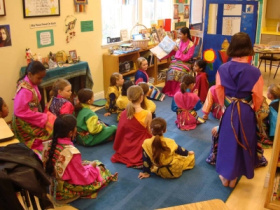
Schools
Education For Life has fully operational primary and high schools in three western states in the USA as well as in Italy and Slovenia in Europe. Several more EFL schools are currently “in the making”. We hope the time will soon come for one in India.
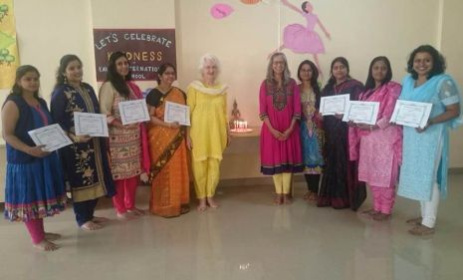
Training
- Overviews for parents, educational administrators, and teachers about EFL and its benefits.
- Workshops and long-term guidance for parents and teachers in applying EFL.
- Online webinars.
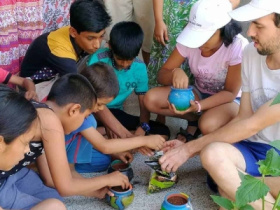
Other Activities
- Collaboration with other educators and institutions on projects.
- Professional presentations and writing.
- Assistance with Ananda endeavours such as family camps, children’s programmes, and fairs.